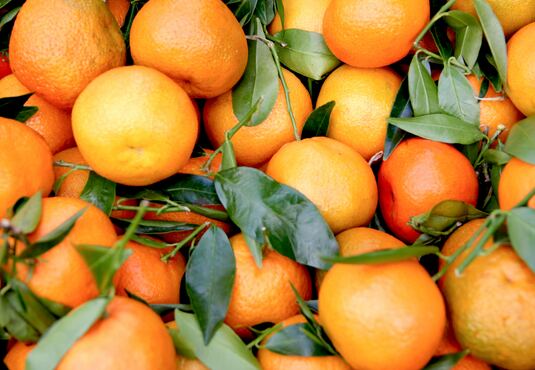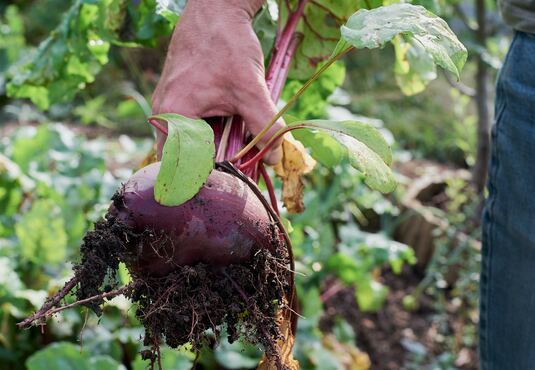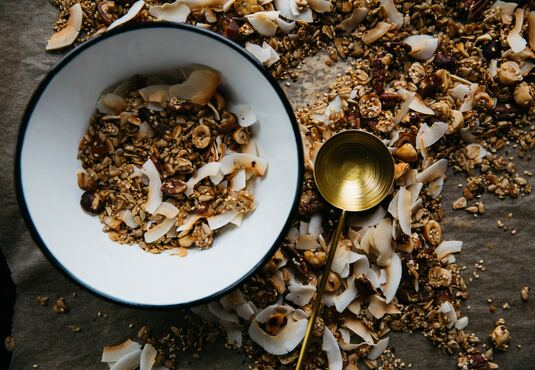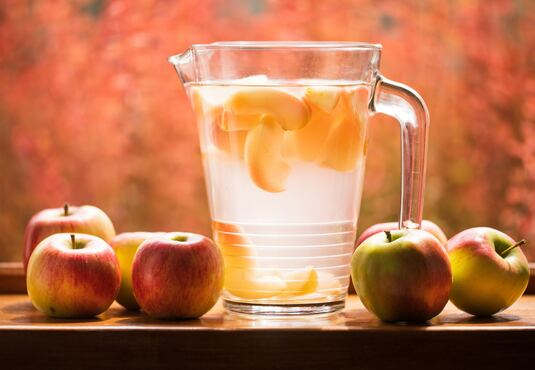
Planetary Health Diet: more than just food
With the exceeding of ecological resilience limits and the consequences thereof (such as climate change), sustainable development on our planet Earth is highly endangered.
This also raises the question of how the future world population of 10 billion people in 2050 can be provided with health-promoting care.
The international EAT-Lancet Commission, consisting of experts in health, sustainability, economics, politics, and agriculture, is working on this issue. The common goal is to create the scientific basis for a transformation of the global food system. The food system alone is responsible for about a quarter of all man-made greenhouse gases.
The promising result is the so-called "Planetary Health Diet" (PHD). It stands for a sustainable, plant-based form of nutrition that can make it possible to feed all the world's people in a healthy way while at the same time protecting the climate and the environment.
Eat healthy and fair to the environment - these are the principles:
· Added value through legumes & co.
Focus on the intake of legumes, vegetables, whole grains, fruits, nuts and unsaturated fats. They contain many nutrients as well as valuable vitamins and minerals and provide sufficient energy.
· Reduce meat consumption.
In particular, reduce the consumption of beef. Beef has a very poor C02 footprint and is therefore a major contributor to climate damage. Ideally, go for regional chicken meat from organic farming.
· Less animal foods.
In the PHD, there is generally less focus on animal foods. Less milk and dairy products and eggs are recommended than in conventional dietary recommendations. Moderate amounts of fish or seafood supplement the diet.
· Reduce sugar and saturated fats.
In this way, cardiovascular diseases and obesity are meant to be minimized. If the whole world would follow the guidelines of the PHD, scientific calculations show that about 11 million premature deaths due to chronic diet-related diseases could be prevented every year.
· Individual daily quantity recommendations.
With PHD, daily consumption recommendations are given in fluctuation ranges that are compatible with health and the environment. This makes it individual and flexible and can be adapted to different crops, for example. The nutritional form can thus be implemented for every person and different personal preferences.
· Knowledge about storage, preparation, portion sizes and use of leftovers.
157,000 tons of opened and originally packaged food are thrown away each year by private households in Austria. That’s 19 kilograms of food that end up in the garbage can per capita every year. In other words, not only are enormous amounts of greenhouse gases produced in vain, but our wallets are also uselessly emptied of several 100 euros.
· Adequate shopping planning.
Appreciating our food starts as soon as we enter the supermarket. Look in the pantry beforehand, create a needs-based shopping list (maybe even a weekly plan) and never go shopping hungry - an essential step to curb haphazard shopping and the waste of precious food.
· Always follow your nose.
Trust your senses. Even if the best-before date has already passed, you can often still enjoy food without hesitation. Provided the packaging was sealed, the food was stored properly and no mold is visible.
· Buy regional, seasonal, fresh and plant-based.
Integrate more vegetarian dishes into your menu, pay attention to the origin of the food as well as a high organic content. In this way, you make your food healthy and, above all, sustainable.
· Follow the "Meal Prep" trend.
Good old-fashioned cooking ahead for a few days is worth it. Make it a family event on the weekend and invest some time in cooking together. Find delicious cooking recipes and use up any leftovers you still have at home. Store the cooked food in the fridge or even in the freezer. With a little bit of stock, you can save time and relax when you need to make a quick meal in between.
What and how much we eat and drink affects not only our health, but also that of our planet. Only on a healthy planet is it possible to live healthily.








